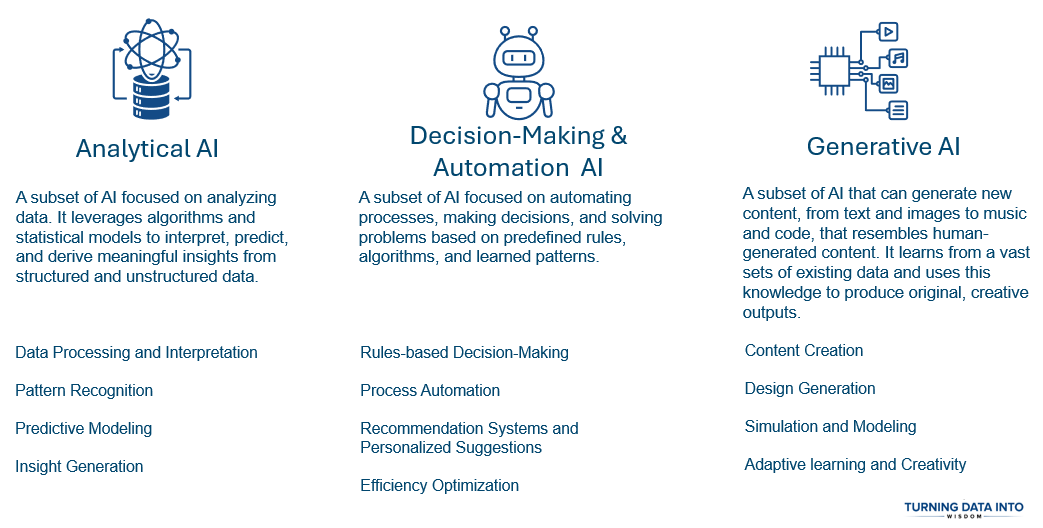Artificial Intelligence (AI) has emerged as a transformative force in the business world, offering unprecedented opportunities for innovation, efficiency, and growth. The AI Opportunity Identification Framework provides a systematic approach for organizations to uncover, evaluate, and prioritize AI applications that deliver tangible business value.
This framework emphasizes understanding three key types of AI: Analytical AI for extracting insights and informing decisions, Decision-Making and Automation AI for streamlining processes and enhancing efficiency, and Generative AI for creating novel solutions and driving innovation. Each type offers unique capabilities and potential applications across various business functions.
A structured process for identifying AI opportunities includes problem identification, opportunity mapping, data assessment, impact and feasibility analysis, ethical considerations, stakeholder engagement, and prioritization. This approach helps organizations align AI initiatives with strategic objectives, identify high-impact applications, ensure responsible implementation, and build support for AI projects.
Successful AI implementation requires more than just adopting new technologies; it demands a fundamental rethinking of organizational operations and problem-solving approaches. Companies that take a strategic approach to AI adoption are significantly more likely to realize substantial financial benefits.
The AI Opportunity Identification Framework offers a comprehensive guide for businesses to navigate the complex AI landscape, providing detailed methodologies and tools to support ongoing AI strategy development and refinement. This structured approach enables organizations to unlock AI's transformative power, driving innovation, efficiency, and competitive advantage in today's rapidly evolving business environment.
Key Takeaways
- AI has significant potential to create value across industries, with estimates ranging from $3.5 trillion to $5.8 trillion annually across nine business functions in 19 industries.
- The AI Opportunity Identification Framework provides a structured approach to identifying, evaluating, and prioritizing AI applications for businesses.
- Three main types of AI are highlighted: Analytical AI for insights and decision-making, Decision-Making and Automation AI for process optimization, and Generative AI for creating novel solutions.
- Successful AI implementation requires a strategic approach that aligns with business objectives, considers ethical implications, and engages key stakeholders.
- Organizations that take a structured approach to AI adoption are five times more likely to realize significant financial benefits compared to those that don't.








